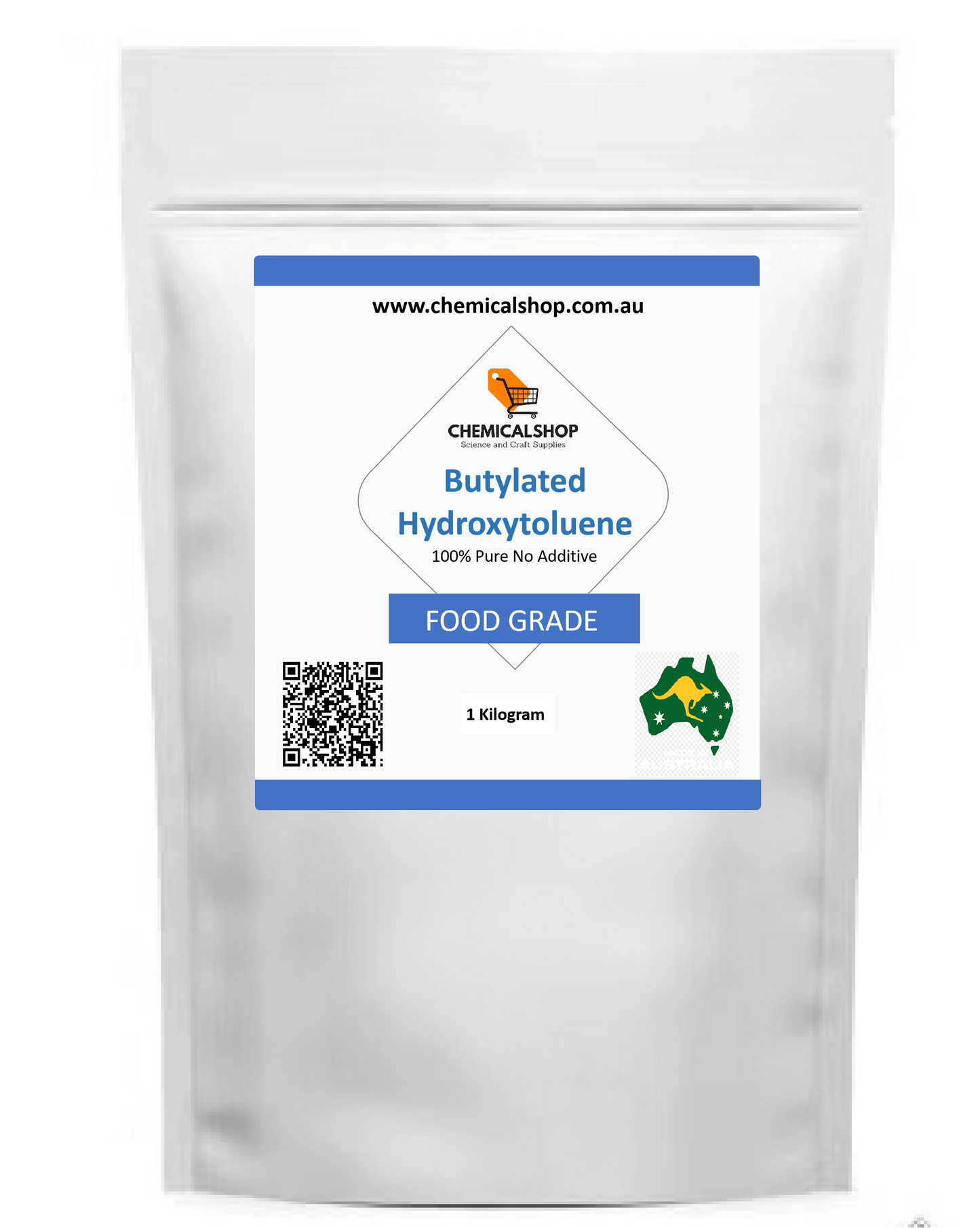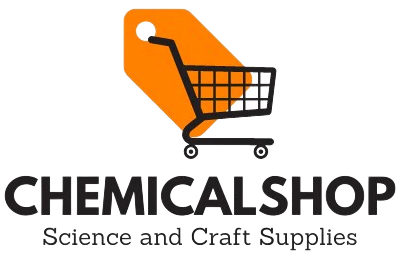AustralianChemicalShop
Butylated Hydroxy Toluene (BHT)
Butylated Hydroxy Toluene (BHT)
Couldn't load pickup availability
Product Name: Butylated Hydroxytoluene
Purity Grade: Technical Grade
CAS Number: 128-37-0
Size: 1 mm in average
Appearance: clear crystal
Other Feature: oil soluble
Butylated Hydroxy Toluene: A Comprehensive Guide
In this article, we will delve into the world of Butylated Hydroxy Toluene, commonly referred to as BHT. This chemical compound has gained popularity in various industries due to its antioxidant properties and preservative effects. Let's explore the uses, benefits, and potential risks associated with BHT.
What is Butylated Hydroxy Toluene?
Butylated Hydroxy Toluene is a chemical compound that is often used as an antioxidant in cosmetics, food, and pharmaceutical products. It helps prevent the oxidation of substances by reacting with free radicals, thus extending the shelf life of the products. BHT is a white, crystalline powder with a slightly aromatic odor.
Uses of Butylated Hydroxy Toluene
- Food Industry: BHT is commonly used as a food additive to prevent fats and oils from becoming rancid. It is added to a wide range of products, including cereals, snacks, and baked goods.
- Cosmetics: BHT is found in various cosmetic products such as lipsticks, moisturizers, and sunscreen to prevent them from spoiling.
- Pharmaceuticals: BHT is used in the pharmaceutical industry to extend the shelf life of medicines and supplements.
Benefits of Butylated Hydroxy Toluene
- Antioxidant Properties: BHT helps protect products from oxidative damage by scavenging free radicals.
- Preservative Effects: By preventing the oxidation of substances, BHT extends the shelf life of various products.
- Safety: When used in approved concentrations, BHT is considered safe for consumption and topical application.
Potential Risks of Butylated Hydroxy Toluene
- Allergic Reactions: Some individuals may be sensitive to BHT and experience allergic reactions such as skin irritation or rashes.
- Regulatory Concerns: The use of BHT in certain products has raised regulatory concerns due to its potential health risks.
-
Environmental Impact: BHT has been linked to environmental pollution and toxicity in aquatic life.
In conclusion, Butylated Hydroxy Toluene is a versatile compound that offers antioxidant benefits and preservative effects in various industries. While it has its advantages, it is essential to use BHT responsibly and adhere to regulatory guidelines to minimize potential risks. Whether you encounter BHT in your food, cosmetics, or pharmaceutical products, understanding its uses and potential impact can help you make informed choices.
How to Use BHT in Food Products
BHT is commonly used in the food industry as a preservative to extend the shelf life of products such as snacks, cereals, and baked goods. To use BHT in food products, it is typically added in small amounts during the manufacturing process. It is important to follow the recommended usage levels provided by regulatory authorities to ensure food safety.
- Pros of using BHT in food products:
- Extends shelf life
- Prevents rancidity
- Maintains product quality
- Cons of using BHT in food products:
- Some people may have sensitivity or allergies to BHT
- Controversy surrounding its safety and potential health risks
How to Use BHT in Cosmetics
BHT is also commonly found in skincare and cosmetic products due to its antioxidant properties. It helps to prevent the oxidation of oils and fats in creams, lotions, and makeup products, which can extend their shelf life and maintain their efficacy.
When using BHT in cosmetics, it is important to check the ingredient list and follow the manufacturer's instructions for application. It is generally safe for topical use, but individuals with sensitive skin may want to perform a patch test before using products containing BHT.
How to Use BHT in Industrial Applications
In industrial applications, BHT is used as an antioxidant in various products such as lubricants, plastics, and rubber. It helps to protect these materials from degradation caused by exposure to oxygen, heat, and light.
When using BHT in industrial applications, it is important to follow the recommended dosage guidelines provided by manufacturers to achieve optimal antioxidant performance. It is also essential to store BHT in a cool, dry place away from direct sunlight to maintain its stability.
SDS is available for download below
SDS is not prepared by us but by the manufacture. Chemicalshop is the distributor. We cannot be responsible for the mistake in SDS file.
https://cdn.shopify.com/s/files/1/0574/5360/9025/files/Butylated_Hydroxy_Toluene_SDS.pdf?v=1728117163

Chemical Shop
Chemical Shop customers' common questions
How long does it take for you to dispatch the paid item?
Chemicalshop dispatchs items within 2 business days. For order equivalent or over 100kg, it might take 5 business days to process.
Do you have a physical store?
Yes, our warehouse is at Factory 6, 18 Prospect Pl, Boronia, VIC. We ship order Australian wide.
Where do you source your product?
All chemicals are sourced from Europe and Australia. We only import highest quality chemicals from the reputable global manufacturers.

